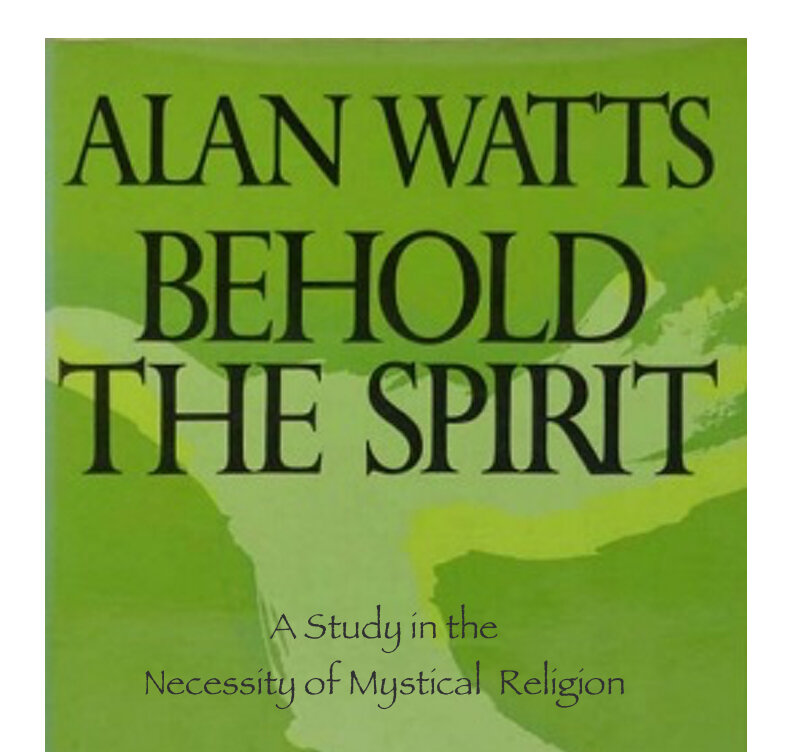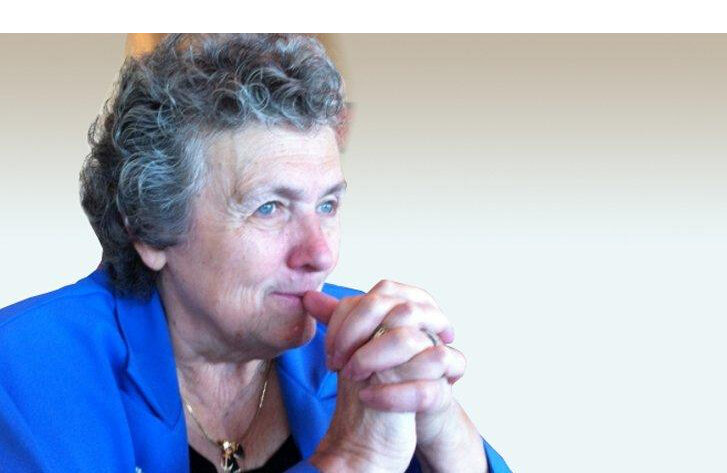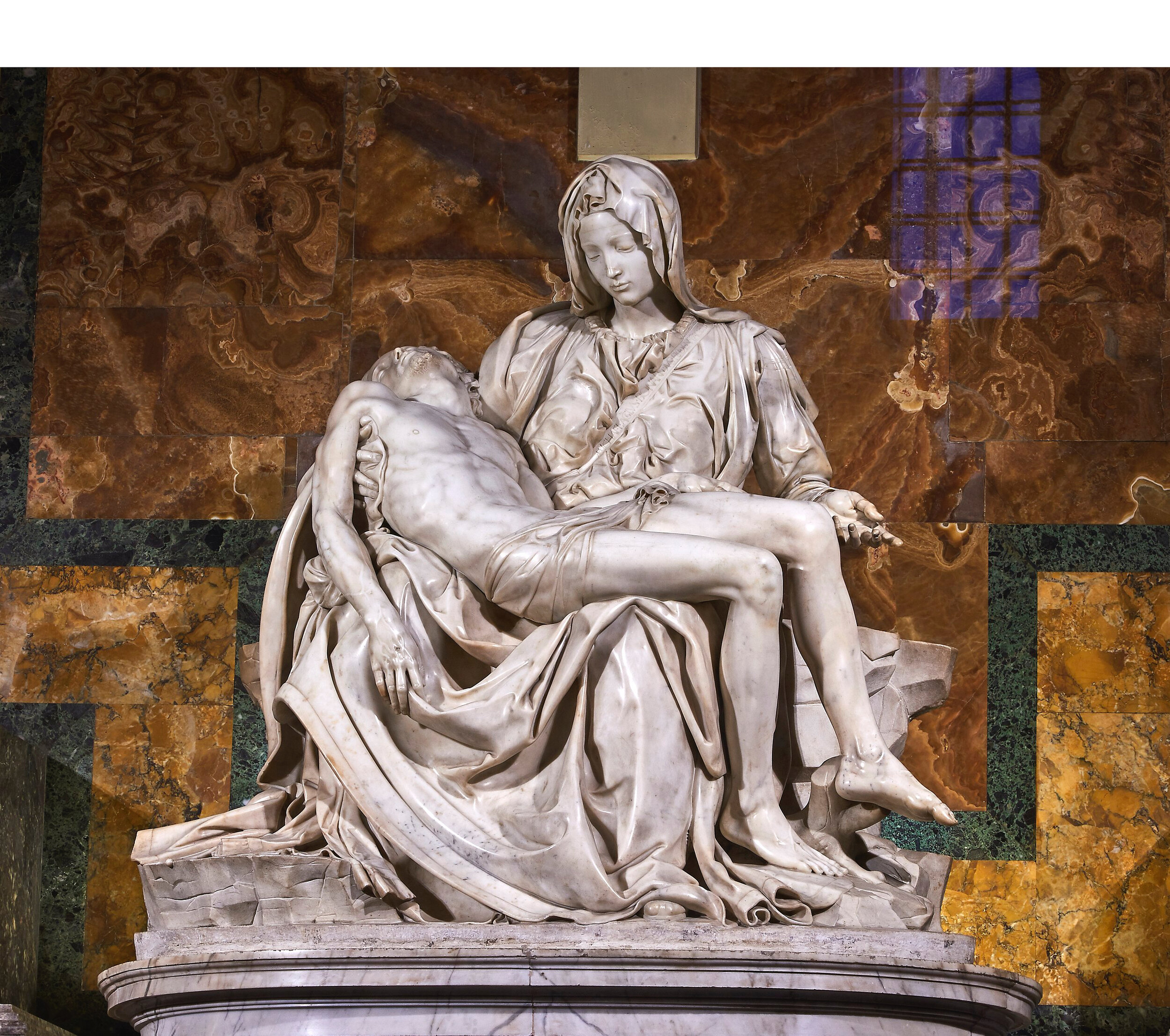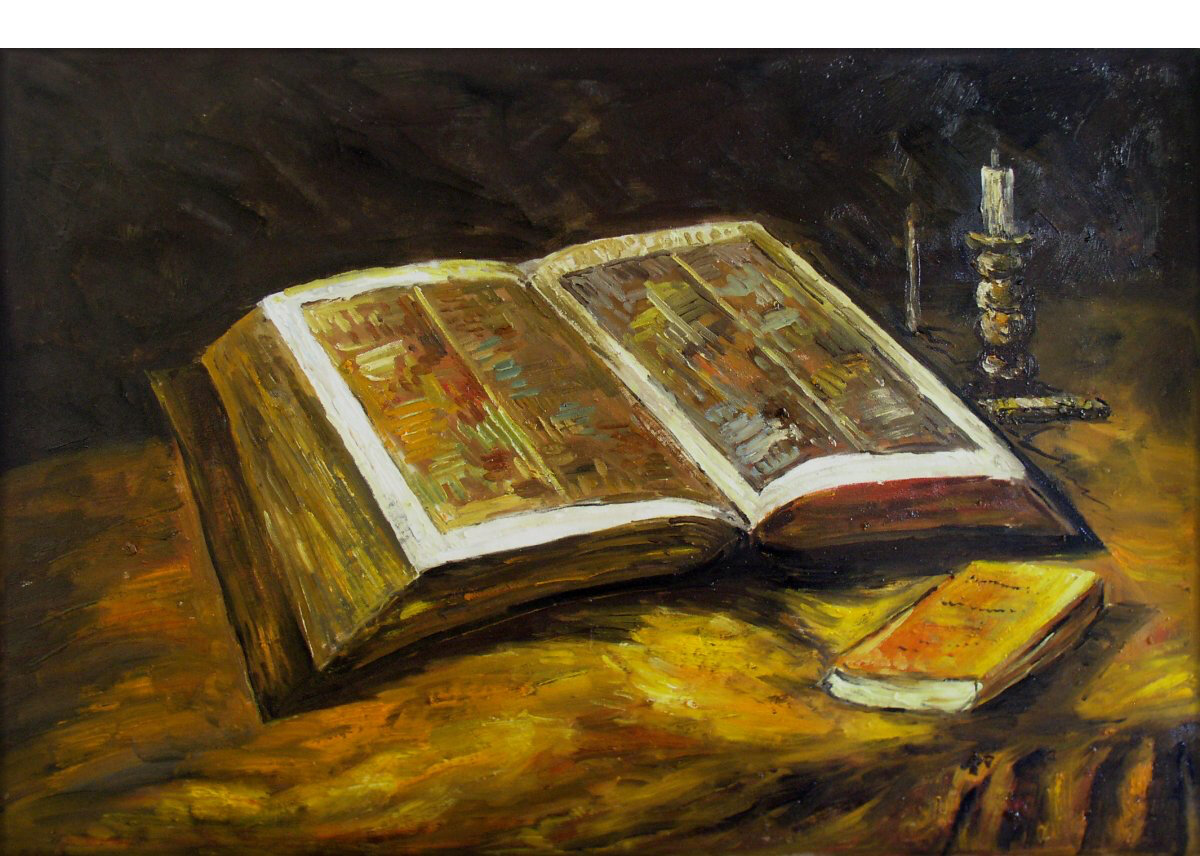
"Male and Female Differences and Strengths - The Yin Yang Perspective" by Felice Dunas
The most fundamental essential philosophies behind Oriental history, culture, religion, government and business is Yin Yang theory. This is one of the oldest cosmologies in all of human thinking. People have been using this understanding of life for over 5000 years. We don’t know its true historical timeline as archeological evidence can document only around 5000 years at present. Yin Yang theory works with the premise that all of life stems from a point of perfect balance. On either side of that balance you have the left and the right, the wet and the dry, the night and the day, the female and the male, the negative and the positive, multi-faceted focused, single goal focused, etc.
BE A SUPPORTER OF FELICE DUNAS’ WORK

“Losing Jesus’ Cultural & Theological Baggage” by Adyashanti
It wouldn’t matter if he grew up a Jew, or a Christian, or a Buddhist, or a Hindu, because he’s speaking about the structure of religion itself—its hierarchy, its tendency to become corrupted by human beings’ desires for power, for influence, for money. ...

"Understanding Gender" (excerpt) The Seekers — Elizabeth Lesser
I often turn to Jungian psychology to better understand issues of gender. Jung separated personalities not so much into male and female, but into unique blends of masculine and feminine qualities, which he believed were found in all human psyches in varying degrees of potency. The masculine principle, or archetype, as Jung called it, celebrates rational thinking, heroic power, goal-oriented achievement, and independence. It is transcendent, visionary, mindful. The feminine principle loves to feel; it compels us to nurture; it links sexuality with relationship; and it reveres life and death as natural cycles of nature. It is embodied, intuitive, heartful.
BE A SUPPORTER OF MS. LESSER’S WORK

"NATIONAL AND RACIAL PAIN-BODIES" (excerpt) The New Earth by Eckhart Tolle
Certain countries in which many acts of collective violence were suffered or perpetrated have a heavier collective pain-body than others. This is why older nations tend to have stronger pain-bodies. It is also why younger countries, such as Canada or Australia, and those that have remained more sheltered from the surrounding madness, such as Switzerland, tend to have lighter collective pain-bodies. Of course, in those countries, people still have their personal pain-body to deal with. If you are sensitive enough, you can feel a heaviness in the energy field of certain countries as soon as you step off the plane. In other countries, one can sense an energy field of latent violence just underneath the surface of everyday life. In some nations, for example, in the Middle East, the collective pain-body is so acute that a significant part of the population finds itself forced to act it out in an endless and insane cycle of perpetration and retribution through which the pain-body renews itself continuously.

"Private "I," Private Property" (excerpt) THE TAO OF ABUNDANCE by Laurence Boldt
The primary or original consciousness, the Tao—the innate intelligence of the universe—is there all the while, whether we are aware of it or not. The man who has amnesia has not become someone else—he has simply forgot-1 ten who he is. In the Western world, which is today (in a cultural sense) ] most of the world, we have a collective amnesia regarding the unnameable Tao—we have lost touch with a consciousness that is prior to the ego. It is j not only that we have failed to open the Wisdom Eye; we have forgotten that it even exists. As a result, the field of consciousness available to us is limited to that defined by the ego.

“Becoming a Warrior of Love” by Amoda Maa
As old world structures crumble, the possibility of a new world dawns on us. A world in which authenticity, transparency, and respect are the ground from which we live. This new world starts within — it’s an inner revolution, a 360 degree turnaround of consciousness in which we meet ourselves, each other, and the life we live from an internal landscape that is free of ego’s grip.
But in order to be free of ego, we are required to face the fear that drives the panic of our minds and poisons the blood in our veins. And this is the task of a warrior — one who can stand as openness in the midst of darkness, one who can walk as presence in the midst of devastation. Is this too much to ask of ourselves, is this beyond our reach as ordinary human beings? No. It is nothing more and nothing less than the harnessing of our birthright of freedom and our true sovereignty of love.

“Behold the Spirit” (New Preface) by Alan Watts
This book was written twenty-five years ago, during the experiment of trying to immerse myself in Christianity —to the extent of being a priest of the Anglican Communion, Episcopal Chaplain at Northwestern University, and an examining chaplain for candidates for holy orders in the Diocese of Chicago. Prior to this experiment, indeed since the age of fifteen, my outlook had been Buddhist rather than Christian even though I had been schooled in the heart of the Church of England and had learned a version of Christianity which was not that of this book. In adolescence I had rejected it, but as time went on the study of comparative religion and Christian mysticism suggested a way in which I might operate through the forms and in the terms of the official religion of Western culture. I did not want to be an eccentric outsider, and felt that Catholic Christianity might be taught and practiced as a form of that perennial philosophy which is the gold within the sectarian dross of every great religion.
CONTRIBUTE TO THE ALAN WATTS ORGANIZATION

“Rediscovering Fire” by Ursula King - Religion, Science and Mysticism in Teilhard de Chardin
PIERRE TEILHARD DE CHARDIN'S vision was one of consuming fire, kindled by the radiant powers of love. It was a mystical vision, deeply Christian in origin and orientation. Yet it broke through the boundaries of traditional orthodoxies -- whether those of science or religion -- and grew into a vision which is global in intent.
His deepest desire was to see the essence of things, to find their heart, and probe into the mystery of life, its origin and goal. In the rhythm of life and its evolution, at the center of the cosmos and the world, Teilhard believed, is a divine center, a living heart beating with the fiery energy of love and compassion. Now, the heart is really a fleshly reality But the image of this very flesh, this concentration of living, breathing matter, came to symbolize for Teilhard the very core of the spirit.
PLEASE SUPPORT MS. KING’S SCHOLARSHIP

“Philosophy of the Tao” by Alan Watts
The subject of this seminar is going to be Taoism as contained in the teachings of Lao-Tzu and Juang-Tzu who lived approximately 400 years or more before Christ, separated probably by 100 years from each other. And as is often repeated, Lao-Tzu started out by explaining that "The Tao which can be explained is not the eternal Tao," and then went on to write a book about it, also saying "Those who say do not know; those who know do not say." Because there's nothing to be explained. You must remember that the word "explain" means to lay out in a plane. That is, to put it on a flat sheet of paper.
PLEASE SUPPORT THE ALAN WATTS PROJECT

“A Sacred Marriage” by Amoda Maa
There is a tendency on the spiritual path to focus on the mind-qualities of illumination—such as clarity, insight, and wisdom—and to perpetuate the idea of an all-seeing, all-knowing God-like state as the pinnacle of self-realization. This emphasis on mind-illumination is prevalent in both old and new spiritual teachings of enlightenment. But a great error is made when supreme wisdom is upheld as the most precious prize. Not only does it keep the carrot of awakening just up ahead and never quite reached, but it also ignores the vital importance of the heart. It is only through the tenderness of the heart that an illuminated mind can flow into our humanity.
The heart is what feels, and feelings must be felt in a direct way—otherwise all sorts of imbalances arise. I’m not talking about the drama of emotions—I’m talking about the tenderest of feelings, those subtle whispers of doubt and confusion and failure and rejection and loss that are inevitable parts of the human experience. Even enlightened beings have a human experience.
BE A SUPPORTER OF AMODA MAA’S WORK

"A Rendering” by Mooji
These words are rendered from the transcript of a dialogue with Mooji that occurred in the spring of 2011.
There are clearly some people whose intellect can readily grasp Advaita Vedanta teachings, and even though the grasping is merely at an intellectual level, behind that there will already have been a subconscious search for something deeper. When this search first opens up through the intellect so that there is a looking for oneself as a separate, private, autonomous entity, and then nothing is found, that seeing or discovery can be the first taste liberating at some level, it's not enough, it's not quite there.
VISIT MOOJI ON LINE

"False Hope and Beauty in an Anthropomorphic God" by Sam Alexander
We speak of a conscious god, one with feelings like sorrow, anger, and joy. We speak of a just god, one who demands moral behavior and forgives moral breaches, one who speaks and gets His way. But is that true? Is there really a god like that or do we simply want that to be true?
Is there for instance, a god who has established justice, one who balances the cosmic scales of justice? Let me quote scripture to answer that one. Qoheleth says, “In my own vaporous life I have seen everything; there are righteous people who perish in their righteousness, and there are wicked people who prolong their life in their evil doing” [Ecclesiastes 7:15].
BE A SUPPORTER OF SAM ALEXANDER’S MINISTRY

“You Know Nothing, Jon Snow” by Galen Pearl
Game of Thrones fans will recognize this line, spoken to Jon Snow repeatedly by the wildling woman he fell in love with, and who died in his arms with these words on her lips.
The universe has conspired lately to remind me that, like Jon Snow, everything I think I know ... I don’t. No matter where I turn – to family, to friends old and new, to martial arts, to life in general – I am confronted by my absolute ignorance of, well, everything. It is disorienting and decidedly uncomfortable. Sometimes scary. At the same time, it is intriguing, exciting, and occasionally even fun.
MS. PEARL’S WEBSITE IS FILLED WITH GEMS!

"The Practice of Forgiveness" (excerpt from THE WISE HEART) by Jack Kornfield
Buddhist psychology offers specific teachings and practices for the development of forgiveness. Like the practice of compassion, forgiveness does not ignore the truth of our suffering. Forgiveness is not weak. It demands courage and integrity. Yet only forgiveness and love can bring about the peace we long for. As the Indian sage Meher Baba explains, “True love is not for the faint-hearted.”
We have all betrayed and hurt others, just as we have knowingly or unknowingly been harmed by them. It is inevitable in this human realm. Sometimes our betrayals are small, sometimes terrible. Extending and receiving forgiveness is essential for redemption from our past. To forgive does not mean we condone the misdeeds of another. We can dedicate ourselves to make sure they never happen again. But without forgiveness the world can never be released from the sorrows of the past. Someone quipped, “Forgiveness means giving up all hope for a better past.” Forgiveness is a way to move on.
PLEASE SUPPORT MR. KORNFIELD’S PRACTICE

"The Law of Attraction: Does It Grant Us an Evolutionary Edge?" by Michael Bernard Beckwith
Why is it that just by walking into a room some people light up the atmosphere with their presence? Why, when certain individuals speak, do their listeners become spellbound, while someone talking about the same subject is met with yawns? What I’m describing are those individuals whose magnetism is so potent they effortlessly make a dynamic impact. No form of social networking, marketing, or résumé reveals more about us than the vibratory frequency that radiates from our being.
BE A SUPPORTER OF MR. BECKWITH’S WORK

"Buddha Nature" by Sharon Salzberg (from rebel buddha website)
When asked about self hatred the Dalai Lama said, "Self hatred. What is that? But you have Buddha nature. How could you think of yourself that way?" How can Western Buddhists gain confidence in Buddha nature and nourish our capacity to offer lovingkindness to ourselves?
VISIT MS. SALZBERG’S WORK

“The God of Many Tongues” by Sister Joan Chittister
Each great spiritual tradition, in its own way, suggests a model of what it means to be a holy person. Each of them shines a light on the human ideal. Each of them talks about what it takes to grow, to endure, to develop, to live a spiritual life in a world calculatingly material and sometimes maddeningly unclear.
Every major spiritual tradition—Hinduism, Judaism, Buddhism, Christianity, and Islam—brings a special gift to the art of living the spiritual life. Each of them refracts the light of its own spiritual wisdom texts in particularly sharp and distinct ways. Each of them strikes a different tone in giving the great truths of life that form a chord, a symphony of truth.
BE A SUPPORTER OF SISTER JOAN CHITTISTER’S WORK

"Divine Feminine" by Jeannie Zandi
Not long ago I dreamed friends wanted me to come upstairs from a dark basement to meet some people. I ascended, realizing as I climbed that my pupils were fully dilated as if still in the dark. Reaching the people, my pupils had not changed and I could not see. Moreover, I had no active principle in me, receptively present to the depth of my being, which was bottomless night. At their mercy, I was unprotected even by the veil of a social face. Blind to the lit world and ecstatic, I turned toward them as an ambassador of the gorgeous dark, entirely open and given.
BE A SUPPORTER OF MS. ZANDI’S WORK

"Myth and the Bible" (Parts 1, 2) by Jeffery Small
When you hear the word “myth” associated with the Bible, what is the first thought that comes to your mind? Do you define the word “myth” to mean that the stories described are not factually true?
My reading of the Bible has undergone an evolution over the years. As a child, I was taught the various stories as if they were actual historical events. As my understanding of science and the world began to broaden, I saw that a literal reading of many of these stories was impossible. I came to view the Bible as myth, by which I meant non-historical stories that contained a moral message. Today, my understanding of the Bible as myth has taken another step. Although I still do not believe that many of the stories are historically or factually accurate (although they may be anchored in historical events), I view “myth” in a broader and more meaningful sense. Mythology is a form of literature that expresses fundamental truths in a way that ordinary discourse is inadequate to describe. Mythology adds a richness of detail and a concreteness to metaphorical language. Now when I refer to the stories in the Bible as mythology, I do not intend to do so pejoratively. Reading these stories as myths gives me the freedom to understand their underlying meaning in a way I never could before.
BE A SUPPORTER OF MR. SMALL’S WORK

